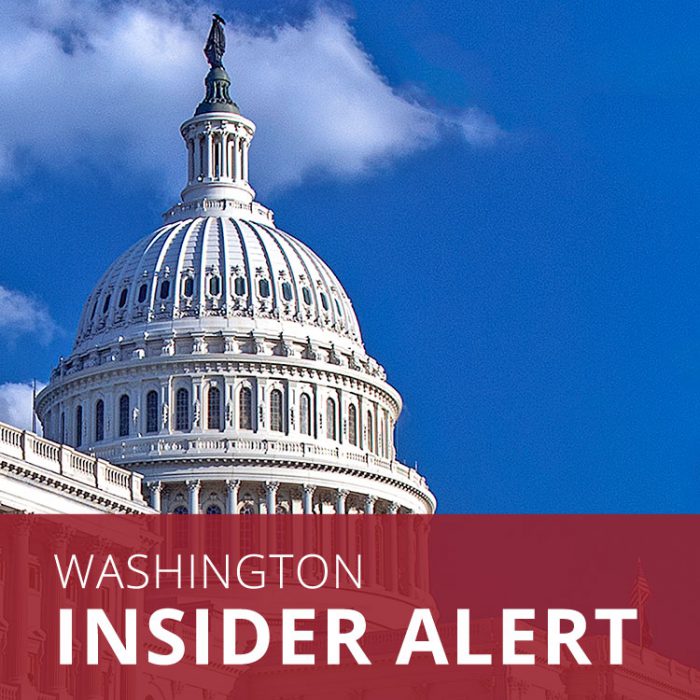Learning and professional development.


 July 6, 2020 (WASHINGTON INSIDER ALERT) - On July 6, 2020, the U.S. Immigration and Customs Enforcement (ICE)'s Student and Exchange Visitor Program (SEVP) announced plans to modify its March 2020 temporary exemptions regarding online study by SEVP participants. The March exemptions allowed institutions of higher education grappling with the onset of the COVID-19 pandemic to continue delivering education to international students during the 2020 spring and summer semesters. Specifically, the exemptions permitted F and M students to take more online courses than normally allowed for purposes of maintaining a full course of study to maintain their F-1 and M-1 nonimmigrant status.
July 6, 2020 (WASHINGTON INSIDER ALERT) - On July 6, 2020, the U.S. Immigration and Customs Enforcement (ICE)'s Student and Exchange Visitor Program (SEVP) announced plans to modify its March 2020 temporary exemptions regarding online study by SEVP participants. The March exemptions allowed institutions of higher education grappling with the onset of the COVID-19 pandemic to continue delivering education to international students during the 2020 spring and summer semesters. Specifically, the exemptions permitted F and M students to take more online courses than normally allowed for purposes of maintaining a full course of study to maintain their F-1 and M-1 nonimmigrant status.
Unfortunately, and despite the fact that 39 higher education associations asked the Department of Homeland Security (DHS) to extend and/or expand prior guidance for the fall 2020 semester, SEVP announced modifications to the temporary exemptions that would prohibit international students attending schools operating entirely online from taking a full online course load while remaining in the United States. The guidance states that, “active students currently in the United States enrolled in such programs must depart the country or take other measures, such as transferring to a school with in-person instruction to remain in lawful status or potentially face immigration consequences including, but not limited to, the initiation of removal proceedings.” The guidance also sets forth policies for F-1 students attending schools that are operating in a hybrid model (mixture of online and in-person classes). Schools that offer entirely online classes or programs or will not reopen for the fall must notify SEVP of their decision by July 15. ICE has issued this FAQ document with additional information on the July directive.
CUPA-HR has joined with other higher education associations, led by American Council on Education (ACE), advocating for changes to the July 6 guidance. On July 10, CUPA-HR joined ACE and 79 other associations in a letter to DHS's Acting Secretary Chad Wolf expressing strong opposition to the July 6 directive and requesting that it be withdrawn as soon as possible and that the agency “grant needed flexibility for our international students and institutions during the global pandemic.”
On July 13, CUPA-HR also joined with ACE and 69 other higher education associations on an amicus brief filed in federal district court in Massachusetts supporting Harvard University’s and the Massachusetts Institute of Technology (MIT)'s lawsuit seeking to block the July 6 directive from going into effect. The ACE brief supports the Harvard and MIT request for preliminary injunctive relief and states that, “the Administration has simply failed to consider obvious and ‘noteworthy concerns’ that a radical departure from previously prevailing immigration policy entails for higher education institutions, their students, and the country as a whole.” The brief also argues that the “directive ignores the critical contributions of international students” and “fails to consider the unique, institution-specific challenges facing American colleges and universities.” Judge Allison Burroughs, who will preside over a virtual hearing on the afternoon of July 14, has signaled that she would likely rule on the preliminary injunction request by July 15 — the deadline for schools to report their Fall 2020 plans.
Higher education is not the only industry expressing concern with ICE’s directive. Lawmakers on Capitol Hill have sent DHS a letter asking the agency to reconsider the modifications to the directive, and the U.S. Chamber of Commerce issued a statement condemning the policy change. Furthermore, on July 9, California’s Attorney General filed a lawsuit seeking to stop the directive, and on July 13, 18 attorneys general, led by Massachusetts Attorney General Maura Healey, also filed suit seeking an immediate injunction against the directive — adding to the growing list of schools, organizations and businesses opposing ICE’s new directive.
This website uses cookies to understand your use of our website and to give you a better experience. By continuing to use our site or by closing this banner without changing your cookie settings, you agree to our use of cookies. To find out more about our use of cookies and how to change your settings, please go to our Privacy Policy.

